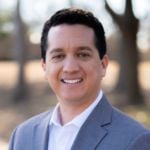
In this engaging clip, Cy Kellett and Trent Horn dive into a thought-provoking discussion about why some individuals, like a viewer from Ohio, choose not to embrace Catholicism. Drawing from personal experiences in a Pentecostal background, they explore the impact of miraculous claims and the complexities of faith, challenging assumptions about doctrine and authenticity in religious practices.
Transcript:
Caller: So I would say the reason I am not Catholic is because of the denomination I was born and raised in. I was born and raised in a Pentecostal denomination. You know, emphasis on spiritual church services, speaking in tongues, healings, things like that.
We have ministers all the time from foreign countries that told us miracle stories, converting people by the millions. There’s one story of a woman who had a kidney that miraculously grew back after this Pentecostal preacher laid hands on her. So I’d say it’s that environment that I’m not Catholic and also because, well, can these people be teaching false doctrine if all these miracles are happening? So that’s why I’m not Catholic.
Trent: Sure. I think those are two good points. Number one, it seems to be you’re thinking, well, if these people are capable, let’s assume that at least some of the miracle claims they’re making are authentic. I mean, there have unfortunately been cases of preachers, including Pentecostal preachers, who claim to be faith healers. But it seems quite suspect what they’re exactly doing.
But let’s just. I think it’s. I don’t think it’s improbable that some non-Catholic Christians, whether they be ministers or lay people, are capable of performing miracles or having God work through them. I don’t think that’s improbable. But I don’t think that it follows that because God works a miracle through them, that God validates their theology completely.
It reminds me in the Gospels when there were the apostles, those who were following Jesus, that there were other people who weren’t direct disciples, who were also casting out demons and doing things. And Jesus said, look, if they’re not against us, they’re with us. Though that wouldn’t mean they had the same apostolic authority as Peter, John, and the other apostles just because other Christians, God empowers them to do miracles.
Because would you agree that, I mean, there are, you know, you said you grew up in the Pentecostal tradition. Would you agree that it’s possible there are, let’s say, Calvinists who have done miracles? God has worked through them with charisms. But that wouldn’t mean you should become a Calvinist, right?
Caller: Well, I guess that’s a fair point because I’ve heard of Mormon missionaries, to change the subject a little bit, who have prayed for miracles. Like I saw one video where they claim to stop a drought. And this one lady was cured of cancer after he was baptized in a Mormon baptism. So I guess that’s a fair point, right?
Trent: And that’s actually a great example because Mormons are not Christians. So God, I mean, He could choose to work a miracle through anyone, even someone who’s non-Christian, who’s not a believer. I mean, you know, God spoke through Balaam’s donkey, for example, in order to move him.
So there could be non-Christians or non-Catholics God could work through to do a miracle, but that doesn’t mean automatically their theology is correct. God’s sovereign. He can choose to do miracles through whoever He wants. For me, I would rather look at trying to determine which theology to believe in. I try to say, look, which one coheres with Scripture and two, which one coheres with history?
Because the Bible, you know, we didn’t have the Bible in the first century. There wasn’t a canon, really. There wasn’t one that was universally recognized until the 4th century. I would say, well, what does early tradition, history, and Scripture tell us? And my full study has led me to the Catholic faith.
I’d also offer you one more thought, Cole, and that would be that some of the traditions in Pentecostalism, so, you know, charism, speaking in tongues, healings, those kinds of things, they’re not contradictory to the Catholic faith. Catholics would agree that God can give different charisms to people all the time.
In fact, there are a group of Catholics that have a special devotion to that. They’re called Charismatic Catholics or part of the Charismatic Catholic Renewal. And that’s something you could look into, that you can kind of see there how those elements of spirituality that you may find to be positive within Pentecostalism, the Catholic Church also fully supports as well, as long as it doesn’t contradict Catholic doctrine or Catholic dogma.
Trent: So does that sound like something you might want to look into or…
Caller: Worth the thought?
Trent: Sure. Yeah. Well, why don’t you take a look at it? And again…
Oh, go ahead.
Caller: Well, I just like to say, well, just these preachers have such… They seem to have such authority when they’re speaking, and that’s just hard to kind of argue against, you know.
Trent: But remember, though, when you say authority, they may sound very confident, they may sound, you know, bombastic, they may sound very winsome. I’ll agree with you there. There are Protestant preachers that can preach up a storm, my friend, but we have to always be careful.
I remember, I believe it’s in the letter to the Thessalonians, Paul says there will come a time where people will not stand for true doctrine and hoping that their ears will be tickled or pleased, they will go after false teachers. So just because someone’s really impressive to listen to, sometimes that’s a warning sign they can be leading people astray.
So when we say speak with authority, we should not mean that they’re very confident. We should ask what is their authority? Who gave them the right to speak on behalf of Christ? If it’s just, well, I read the Bible, how do you know your interpretation is right? First Peter 1:20 says, no prophecy of Scripture comes about by one’s own interpretation.
So I would say the real authority lies in those people who are the successors of the apostles. And we find that apostolic succession fully in the Catholic Church. So something to think about and do. Call back at another time or maybe in an open forum if you want to get more answers.
Cy: Cole, thank you very, very much for that call. Our topic this hour, why aren’t you a Catholic? Why are you not a Catholic?



